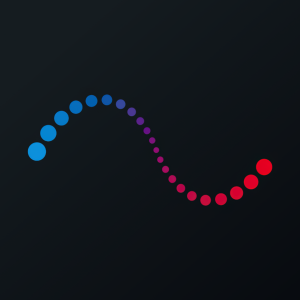Even 2 Hours of PAP Therapy per Night Benefits Sleep Apnea Sufferers: ResMed Study
ResMed's recent study highlights that sleep apnea patients can experience significant health benefits from just 2-3 hours of nightly PAP (positive airway pressure) usage. An analysis of 180,000 users found that each additional hour of PAP use reduces hospitalizations by 5% and emergency room visits by 4.4%. The study suggests that health systems should adapt their guidelines, as benefits extend up to 7 hours of use. Currently, Medicare requires a 4-hour minimum for adherence, which may hinder patient care. The study aims to reshape how healthcare professionals prescribe PAP therapy.
- PAP usage as low as 2-3 hours per night shows health benefits, significantly lowering hospitalization and ER visit rates.
- Each additional hour of PAP use correlates to a 5% reduction in hospitalizations and 4.4% reduction in ER visits.
- Study findings promote reevaluation of Medicare guidelines for PAP usage adherence.
- Current Medicare guidelines require 4 hours of nightly PAP use for patient adherence, potentially limiting access.
Insights
Analyzing...
- 2–3 hours of nightly PAP use shows health benefits at 3 months, 1 year, and 2 years
- Health benefits significantly increase by use hour/night, up to 7 hours
SAN FRANCISCO, May 18, 2022 (GLOBE NEWSWIRE) -- Sleep apnea sufferers can gain health benefits from PAP (positive airway pressure) treatment in as little as two hours per night, according to a study led by ResMed (NYSE: RMD, ASX: RMD) and presented at the American Thoracic Society’s annual International Conference.
The retrospective, observational study analyzed the deidentified usage data of 180,000 U.S. PAP users to observe their average rates of all-cause hospitalization and emergency room visits based on the number of nightly hours they use PAP, from zero to nine. Researchers found:1
- The minimum PAP usage threshold for benefit was 2-3 hours per night (up to
50% lower than the 4 hours required by the U.S. Centers for Medicare and Medicaid and many private payers to prove adherence) - Benefits begin at 2 hours of nightly PAP use and increase each hour up to 7 hours per night. Benefits were seen at 90 days, one year, and two years into the study.
- Over the two years, each additional hour of nightly PAP use reduced:
- Hospitalizations by
5.0% - ER visits by
4.4%
- Hospitalizations by
“This study can positively change how healthcare professionals prescribe and encourage sleep apnea sufferers to use PAP – and how they’re covered,” said Atul Malhotra, lead author and research chief of Pulmonary, Critical Care, and Sleep Medicine at the University of California San Diego.
Today, the U.S. Centers for Medicare and Medicaid define PAP therapy adherence as using a PAP device for at least four hours per night for
“If just two hours of nightly PAP use can significantly lower a patient’s risk of getting hospitalized, our health systems should encourage and enable people to access and keep using these solutions,” Malhotra said.
An estimated 54 million Americans have obstructive sleep apnea,3 a chronic disease in which throat muscles relax during sleep, constricting airflow. The body’s resulting jolt “awake” to take a breath causes dozens to hundreds of sleep interruptions per night. Sufferers often aren’t aware of these waking episodes, and
Read the study’s full abstract here.
About ResMed
At ResMed (NYSE: RMD, ASX: RMD) we pioneer innovative solutions that treat and keep people out of the hospital, empowering them to live healthier, higher-quality lives. Our digital health technologies and cloud-connected medical devices transform care for people with sleep apnea, COPD, and other chronic diseases. Our comprehensive out-of-hospital software platforms support the professionals and caregivers who help people stay healthy in the home or care setting of their choice. By enabling better care, we improve quality of life, reduce the impact of chronic disease, and lower costs for consumers and healthcare systems in more than 140 countries. To learn more, visit ResMed.com and follow @ResMed.
1 Malhotra A et al. Am J Respir Crit Care Med suppl (ATS Abstract) 2022
2 Centers for Medicare & Medicaid Services. https://www.cms.gov/medicare-coverage-database/view/ncacal-decision-memo.aspx?proposed=N&NCAId=204. Accessed May 2, 2022.
3 Benjafield AV et al. Lancet Resp Med 2019
4 Young T et al. Sleep 1997
| For Media Kristin Deuber +1 615.975.4186 resmed@allisonpr.com | For Investors Amy Wakeham +1 858.836.5000 investorrelations@resmed.com |








